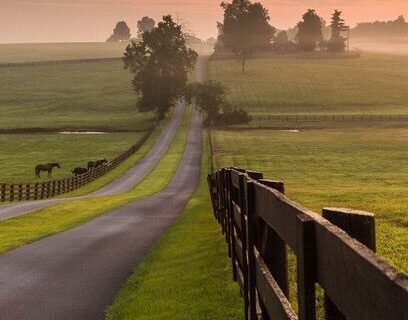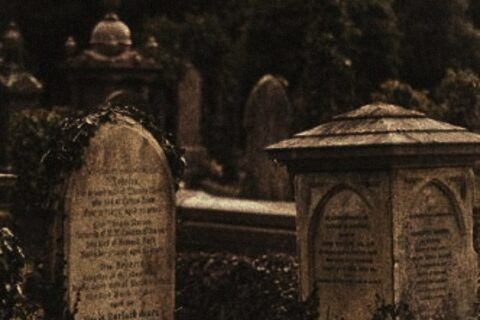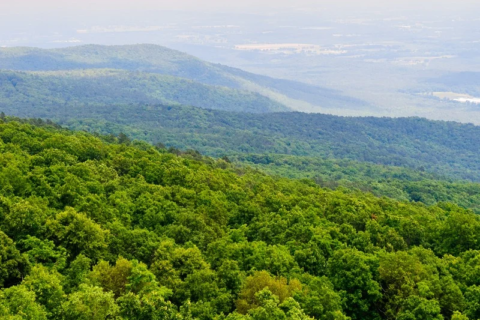When I was a boy, one of my chores was to dry my grandma’s car after the rain. She would pull her mint condition, 1973 Chevelle into the garage. There, my little brother and I would dry off the car as quickly as possible, using old tee shirts and long retired ruffly bloomers. My grandma thought the rain would eat the paint, and this would be the last car she ever owned. It was one of the many jobs we had but never thought much about.
Our home was small in North Central Florida – no more than 1,300 square feet, but it seemed like an enormous castle to us, especially with a massive, screened lanai in the back, adding more space. We spent a lot of time under those fans when we were not working or in a nearby pool. My brother and I were little. We never noticed that we were poor or that my grandma’s fixed income denied us some of the pleasantries other children enjoyed. We would wake up, walk across the shag carpet, make ourselves a bowl of cereal, and head out to do whatever chores were required for the day. The faster we were done, the faster we could walk two miles to the community pool.
Before we would go to the pool in the afternoon, my grandma would make us grilled cheese sandwiches made from government cheese. She used big blocks of cheese that were housed in a cardboard box, from where she got them, I still do not know. You had to slice the cheese yourself and it was something of an art to keep the block squared from beginning to end. My grandma was a terrible cook, hailing from Ireland, where cooking was not a sophisticated pastime of privileged women. It was a means to sustenance. However, when it came to grilled cheese sandwiches, the ability to burn something was a good thing.
Our grandma was a simple farm girl from the West of Ireland. In the evenings we ate some kind of meat and potatoes or rice every single night. We ate a lot of liver, but also had our fair share of fried hot dogs or burger patties. My grandma was not a fan of Italian food – she questioned its nutritional purpose. Nor would she eat Chinese food, because of Pearl Harbor, the Korean War, and Vietnam. Vegetables were rare and almost always canned – usually due to a sale on dented products. There was no dinosaur chicken nugget choices at our home. We never complained; we ate what was on our plate.
Fruit, however, in Florida was abundant. We ate oranges almost every day. We never had soda. We drank milk or water – often from the hose outside. For holidays, we got to buy an envelope of Kool-Aid. We learned the joys of sweet tea and lemonade from neighborhood friends, whose mothers took pride in the perfect ratios of sugar and water.
Summers in Florida are hot, but without air conditioning, they are even hotter. Air conditioning was an expensive luxury, so even if my grandma had it, a fan was perfectly sufficient. We watched the only television in the home. It always began with the evening news, followed by whatever television programming she enjoyed. We would sit in our skivvies and tee shirts, skinny little things that did not have enough body fat to keep ourselves overheated. Indian-style or laying on our bellies were the preferred method to enjoy The Dukes of Hazard, Little House on the Prairie, Grand Ole Opry, or Knight Rider. Essentially, if it was not on a major network or TBS, we did not see the show. Television was an evening luxury, quickly surrendered if you did something stupid, like the time my brother decided to cuss in a grocery store.
About once a month we found ourselves at the VFW or the American Legion Hall. They would hold dances for the couples, but mostly it was for the widows and widowers. My Irish grandfather was a World War II veteran who was one of the first to land on Normandy. He had died before I was born. My grandma volunteered with her older girlfriends, but she never dated any of the men who would ask her to dance. She was small and pretty for her age. But she had the love of her life and he was in Heaven, awaiting their reunion.
For my part, I would sit at the table of the very old men – the World War I veterans. I could just listen to them the whole night. My elbows would be sore from leaning on the table listening for hours. They would talk freely about their experiences, as well as those of their fathers, grandfathers, and great-grandfathers. They largely ignored me, except when they needed something, like a whiskey or a beer. I would fetch it for them and come back, licking the droplets of whiskey that poured over the side and onto my hands.
Unlike Southeast Florida, North Central Florida was still very Southern and most of the men were either Florida boys themselves – Crackas – or from nearby states, like Georgia or Alabama. That meant almost all of them had a father who served in the Spanish-American War. Many of the old timers had granddaddies who served the Confederacy during the War of Northern Aggression. They would retell stories passed on to them and I would find myself daydreaming about assaulting Yankee positions at Chickamauga or riding with Teddy Roosevelt’s Rough Riders in Cuba. My brother, meanwhile, would find himself getting into no good somewhere in the halls. Eventually it was time to go. As the years went on, fewer and fewer of those old men would be around. Eventually, I sat at the Marines table, listening to their stories about the Japanese.
Church was crucial for us and every week, we dressed our best. I learned how to tie my own tie and showed my brother. Our shoes were brush shined by our own hands. Our trousers and shirts were pressed. Our hair was combed and just enough spit controlled the cowlick. Despite spending nearly every minute in the sun, my grandma pinched our cheeks to make them a bit rosier – “Ye look healthier that way.”
On occasion, after church, we would go to a buffet restaurant. That was a huge treat. It usually meant that we got a break from liver and onions. I could eat my weight in fried shrimp.
Every night, we said our prayers. As Catholics, it was important to begin and end with the Sign of the Cross. On our knees, we prayed for this or that. We prayed for the health of our family. We prayed for money that never came. We prayed that my mother and father would find their way. For my father, that never came, either.
We would hop into bed. Lost in my thoughts, I would stare at the slow-moving ceiling fan. My little brother always fell asleep first. I could occasionally stay awake for hours, just thinking. One night, I got out of my bed and went to the bathroom. I heard my grandma speaking to someone between tears. I looked around the corner and there she was, on her knees, quietly crying and talking to my grandpa in Heaven. She missed him deeply. She wanted my mother to escape her choices. She asked for strength to keep up with the two boys whom she found herself raising, barely out of diapers. We never saw her that way during the daytime. She was always a rock. At night, while we were in bed, it was her time to pray and her time to cry. I deeply love my grandma. I always will. She was my mother in so many ways – now, long gone to my grandpa who awaited her.
The son of a recent Irish immigrant and another with roots to Virginia since 1670. I love both my Irish and Southern Nations with a passion. Florida will always be my country. Dissident support here: Padraig Martin is Dixie on the Rocks (buymeacoffee.com)






Mr. Martin, this past week I listened to some of Dixie on The Rocks podcasts. I wish Mrs. Martin speedy recovery and am glad you survived the hurricane.
Your article reminds me that diversity, equity and inclusion actually causes alienation between peoples. Simply throwing people together who do not have anything in common does not create a harmonious society.
Hello Dogface,
Thank you very much for your kind concern. I agree with you regarding diversity, especially when it is compelled.
God Bless,
Padraig Martin
Thank you for sharing that, you mentioned awhile back about your Grandfather getting into trouble during the depression and getting sent to a chain gang for 6 months, if I remember correctly, is that the husband of your Grandmother you just wrote about? You also stated your Grandfather was an M.P at Hickam field, my Grandfather also worked at Hickam field during the 40s and was called to his post (civilian aircraft electrician) on the day Pearl Harbor was attacked, I’m pretty sure they would have known each other, or at least your Grandfather knew who my Grandfather was.
You must have made your Grandmother very proud of you.
You have been really well spoken on your Gab posts, would it be so hard to get Dixie on the rocks here on ID?.
God Bless you and all the work you do.
Hello Outside Looking In,
Thank you very much for the compliments. Regarding my grandfather at Hickam, that was my American grandfather who did time for breaking into a gumball machine – 6 months of hard labor – before running away to the West Coast with a friend and joining the Army. I am not sure how he found himself in the Army Air Corps. It was a small base, which I visited in 2015 and the size of it would have certainly meant familiarity at a minimum. My Irish grandma married an Irishman – my grandpa – who served in the US Army in Europe.
Regarding Dixie on the Rocks on ID, the projects are related, but for now, they remain separate. We are exploring more ways to bridge the two.
God Bless,
Padraig Martin
I’ve only recently discovered your work, Padraig. Your posts embody what I’ve always thought, but you take the jumble out of it and make it all clear to me. Thank you.
Thank you very much for reading my work and your kind compliment, Mr. Cunningham.
God Bless,
Padraig Martin
Wonderfully told. My grandmother was the most important person in my young life, utterly selfless. She passed when the pandemic was beginning, eighteen months or so short of her hundredth birthday. I owe her everything.
How singular and welcome to read a testimony of the particular love you had for your grandmother! It’s like a flicker of surviving Christendom in our age of EQUALITY.
I’ve always admired Herman Melville’s skill as a writer — Moby Dick is one of my favorite novels — but this quote from Redburn is enough to make me (and any good nationalist) wretch:
“You cannot spill a drop of American blood without spilling the blood of the whole world. We are not a narrow tribe of men, with a bigoted Hebrew nationality – whose blood has been debased in the attempt to ennoble it, by maintaining an exclusive succession among ourselves. No: our blood is as the flood of the Amazon, made up of a thousand noble currents all pouring into one. We are not a nation, so much as a world; for unless we may claim the world for our sire, like Melchisedec, we are without father or mother. For who was our father and our mother? Our ancestry is lost in the universal paternity. We are the heirs of all time, and with all nations we divide our inheritance. On this Western Hemisphere all tribes and people are forming into one federated whole; and there is a future which shall see the estranged children of Adam restored as to the old hearthstone of Eden. Then shall the curse of Babel be revoked [and] a new Pentecost come.”
Herman Melville, ‘Redburn’
(Homer didn’t just ‘nod’ on that one. He had a stroke!)
Thanks for immortalizing these experiences and your Grandma. These are stories we have to tell, pass down, so our progeny grow deep roots.